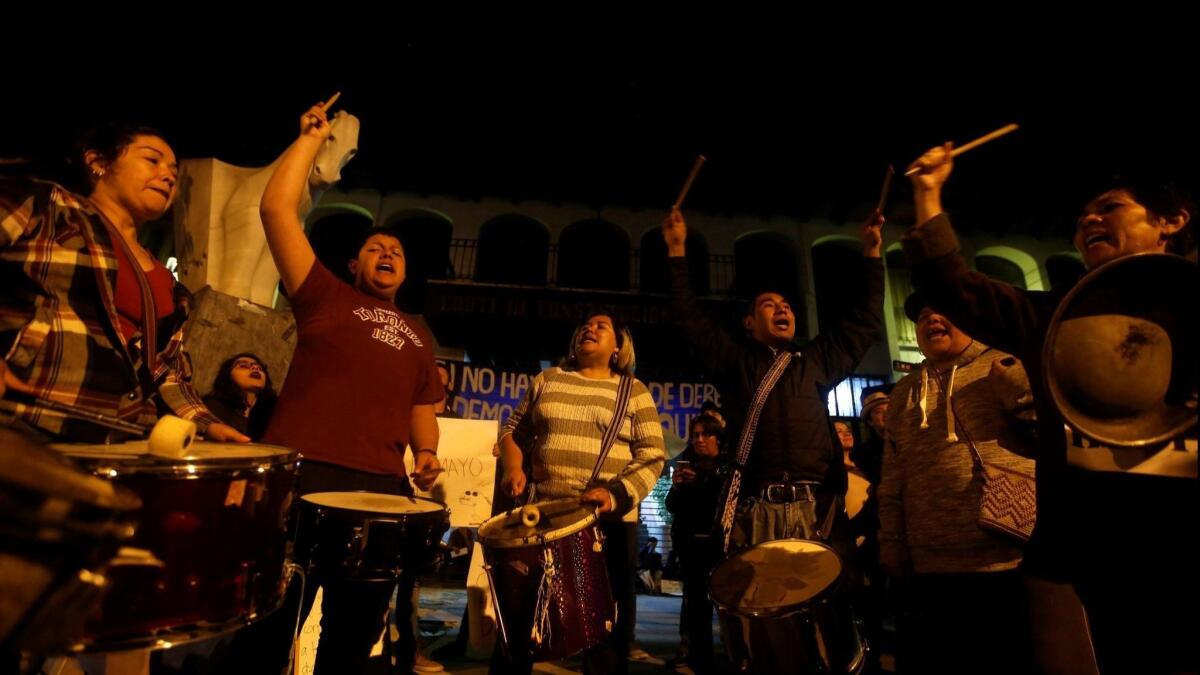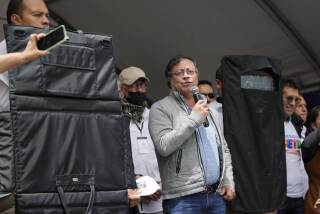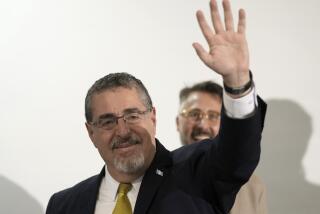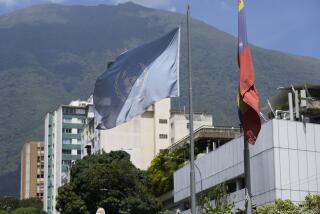Guatemala court blocks president’s effort to boot anti-corruption commission

- Share via
Reporting from Mexico City — Guatemala’s highest court has blocked efforts by President Jimmy Morales to expel a United Nations-backed anti-corruption commission that has been investigating Morales and several members of his family.
On Monday, Morales gave the commission 24 hours to leave the country, a move that drew several appeals from civil society leaders who claimed it was illegal.
In a ruling issued early Wednesday morning after all-night deliberations, the nation’s Constitutional Court found that the International Commission Against Impunity in Guatemala was allowed to remain in the country and carry out its activities, which include conducting independent investigations into corruption, drug trafficking and genocide.
It was unclear whether Morales, who has shown a willingness to disobey the court in the past, would comply with the ruling.
If he doesn’t, Guatemala’s democracy is in question, the country’s human rights prosecutor told the Associated Press.
“The government is under obligation to comply,” said Jordan Rodas, who presented one of the court appeals. “If it doesn’t obey, that is a whole other matter, and would constitute a coup, because the cornerstone of the rule of law is respect for the judicial branch.”
Although several members of the commission fled Guatemala on Tuesday, a spokesman for the group, Matias Ponce, said it would continue its work.
The commission “must complete its mandate in respect to the international agreement between Guatemala and the United Nations,” Ponce said.
Formed by the U.N. in 2006 at the request of Guatemalan civil society groups, the commission has worked with local prosecutors to jail hit men, drug barons, dozens of legislators and three ex-presidents.
Morales vowed to support the commission when he took office in 2015 but turned on it when the group began investigating him on allegations of accepting about $1 million in illegal campaign donations. The commission has also investigated his son and brother on corruption charges.
Morales and other critics have accused the group of having political motivations and violating Guatemala’s sovereignty.
The controversy over the commission, which polls show has the support of a majority of Guatemalans, has prompted days of street protests.
On Tuesday, the U.S. State Department issued a statement urging a peaceful resolution.
The United States was instrumental in creating the commission, part of a broader effort to fight corruption in a region where political instability and economic inequality have spurred migration north. The U.S. provides about half of the commission’s $15-million annual budget.
Although the State Department said “the United States is concerned about the future of anti-corruption efforts in Guatemala,” its statement did not directly condemn attacks on the U.N. commission.
That has prompted criticism from supporters of the group, who say its existence is integral to U.S. interests, particularly on the issue of immigration.
.
Twitter: @katelinthicum
More to Read
Sign up for Essential California
The most important California stories and recommendations in your inbox every morning.
You may occasionally receive promotional content from the Los Angeles Times.











